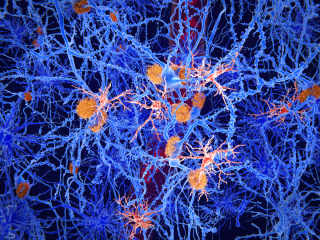
Researchers at McGill University and the Douglas Institute have made a groundbreaking discovery in the field of depression research. They have identified two specific types of brain cells that are altered in individuals suffering from depression. This study, published in the prestigious journal Nature Genetics, not only deepens our understanding of depression—a condition affecting over 264 million people globally—but also opens the door to developing new, targeted treatments.
“This is the first time we’ve been able to identify what specific brain cell types are affected in depression by mapping gene activity together with mechanisms that regulate the DNA code,” said Dr. Gustavo Turecki, senior author of the study. Dr. Turecki is a professor at McGill, a clinician-scientist at the Douglas Institute, and holds the Canada Research Chair in Major Depressive Disorder and Suicide. “It gives us a much clearer picture of where disruptions are happening, and which cells are involved,” he added.
Breakthrough Enabled by Rare Brain Bank
The researchers’ success was largely due to the use of post-mortem brain tissue from the Douglas-Bell Canada Brain Bank, one of the few collections worldwide that includes donated tissue from individuals with psychiatric conditions. This rare resource allowed the team to employ single-cell genomic techniques to analyze RNA and DNA from thousands of brain cells, thereby identifying which cells were functioning differently in those with depression.
In their study, the researchers examined samples from 59 individuals diagnosed with depression and 41 without the condition. The results revealed altered gene activity in a specific type of excitatory neuron involved in mood and stress regulation, as well as in a subtype of microglia cells, which play a role in managing inflammation. In both cell types, numerous genes were found to function differently in individuals with depression, suggesting potential disruptions in these critical brain systems.
Implications for Understanding and Treating Depression
By pinpointing the brain cells affected in depression, this study provides new insights into the biological basis of the disorder. It also challenges lingering misconceptions about depression by reinforcing the idea that it is not merely an emotional condition, but one that involves real, measurable changes in the brain.
“This research reinforces what neuroscience has been telling us for years,” Turecki said. “Depression isn’t just emotional; it reflects real, measurable changes in the brain.”
The study’s findings represent a significant step forward in the quest for more effective treatments. As a next step, the researchers plan to investigate how these cellular changes impact brain function and whether targeting them could lead to improved therapies.
About the Study
The study, titled “Single-nucleus chromatin accessibility profiling identifies cell types and functional variants contributing to major depression,” was authored by Anjali Chawla, Gustavo Turecki, and their colleagues. It was published in Nature Genetics and received funding from the Canadian Institutes of Health Research, Brain Canada Foundation, Fonds de recherche du Québec – Santé, and the Healthy Brains, Healthy Lives initiative at McGill University.
Looking Forward
This development follows a growing body of research that seeks to unravel the complex biological underpinnings of depression. As scientists continue to explore the genetic and cellular landscapes of mental health disorders, the hope is that these insights will lead to more personalized and effective treatment options for those affected by depression.
Meanwhile, the scientific community eagerly anticipates further studies that will build on these findings, potentially transforming the way depression is understood and treated in the future. As Dr. Turecki and his team continue their work, the potential for breakthroughs in mental health treatment remains promising.






